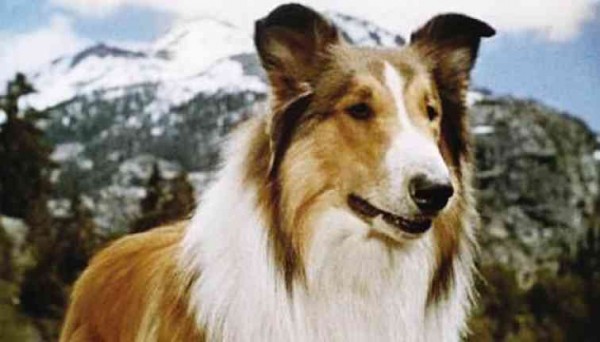Stellar animal performers light up the screen

LASSIE. Played by collies who looked the same and were trained to cumulatively perform “on cue” for decades.
Aside from charismatic and gifted actors and actresses, animal performers have also been popular on the movie screen, since the very dawn of cinema.
In fact, some of them acquired such a huge and loyal following that they became stars in their own right—Rin Tin Tin, Lassie, Flipper, Cheetah (the chimp in the Tarzan films), and noble screen horses like Champion and Trigger.
Some of these stellar animal performers made their owners and trainers very rich, because providing trained animals to movie and TV studios is big business!
Interestingly, some animal stars have had such long careers that they are actually not single players, but a series of creatures, all sharing the same stellar “brand name.”
For instance, “Lassie” was played by a string of collies who looked exactly the same and were trained to cumulatively perform “on cue” for decades.
Article continues after this advertisement“Performing on cue” is the most important ability that animal players are made to develop, since filmmaking is a very expensive business where time is of the essence, since scores of people are hired to work on a production.
Article continues after this advertisementIf an animal performer balks or doesn’t follow instructions, all those people have to wait—and wait—while still getting paid, so animal “diva” behavior is simply unacceptable!
More recent animal stars include dogs like Beethoven, Benji and Asta, Bart the bear and Clyde the orangutan. How are they trained? They are usually “tricked” into reliably coming up with the required action or behavior—and immediately rewarded with treats if they perform correctly.
Facial expressions
What about the animal performers’ “emotional” expressions? Most of them aren’t real feelings at all, just a matter of the camera “waiting” for the right look, which is then edited into the film to signify that the animal character is feeling something.
Our most humbling experience as a director in this regard came when we were megging a popular sitcom, and the dog in the scene had to bark on cue. Alas, our canine “star” didn’t want to do any such thing, so many minutes were wasted trying to “persuade” it to deliver the goods. When all entreaties failed, we were reduced to providing the barking sounds ourself! —Most humiliating, but it had to be done . . .
So, we have great respect for animal handlers who make sure that their “talents,” reliable professionals one and all, make life easier for TV-film production people.
Many industry people agree, which is why there’s a separate award for outstanding animal “performances” in the States, known as the Patsy Awards.
—Perhaps a local version can be launched here, as a sidelight to an existing film award derby?